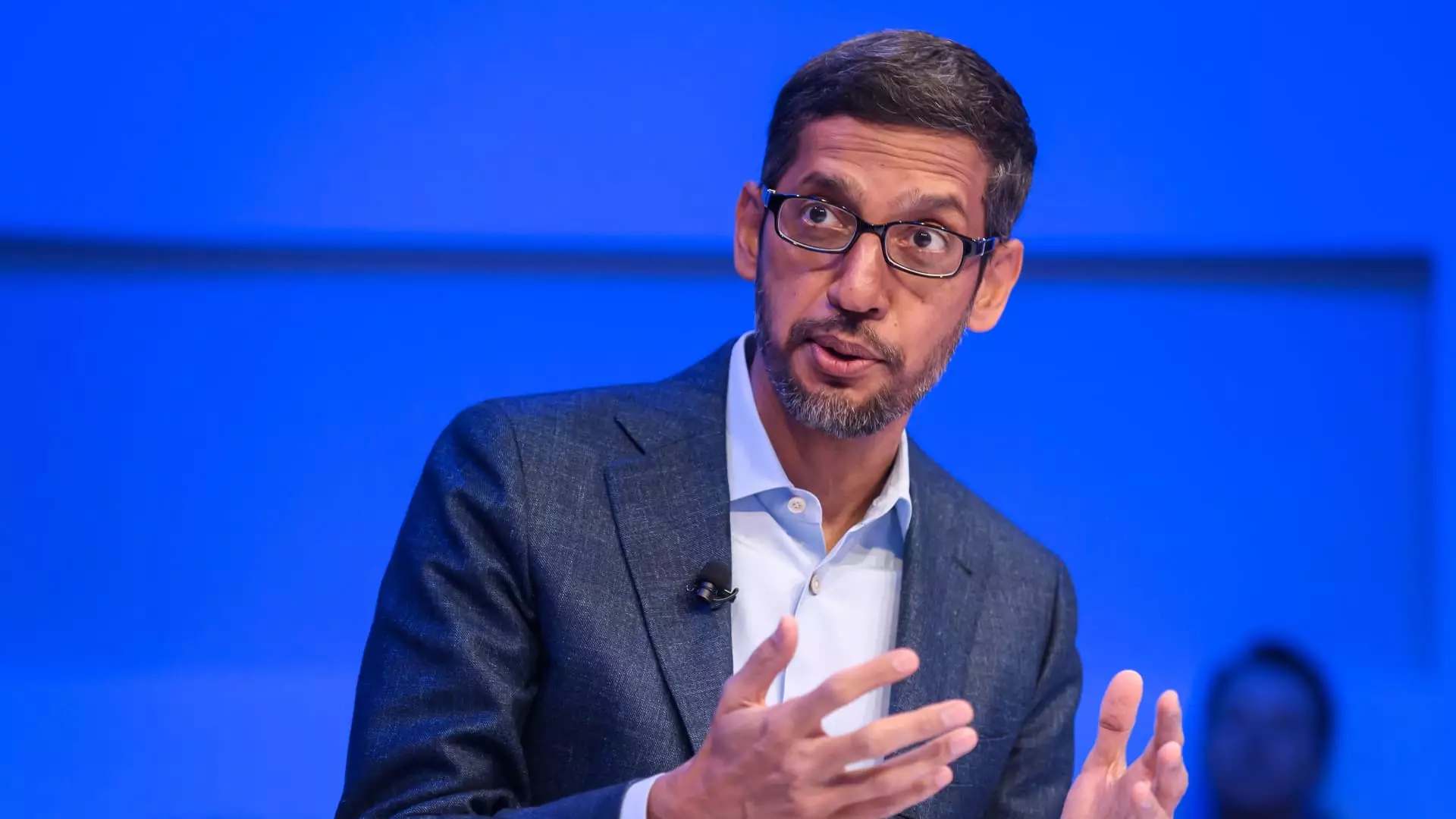In a recent address to Google employees, CEO Sundar Pichai emphasized the critical juncture the company faces as it approaches 2025. He described a landscape fraught with challenges, including heightened competition, rigorous regulatory scrutiny, and the rapid evolution of artificial intelligence (AI). This meeting, held on December 18, served both as a reality check and a motivational call to action for Google’s workforce, as the company strives to not only maintain its market dominance but also innovate in ways that resonate with customers.
Pichai’s remarks underscore an overarching theme: the necessity for speed and agility in a setting defined by significant disruption. “The stakes are high,” he declared, urging employees to embrace a sense of urgency. His message is not merely about rapid development; it’s also a clarion call for a transformative approach to problem-solving via technology. As AI technologies innovate exponentially, Google must focus on evolving its capabilities to offer solutions that address genuine user concerns and improve experiences across various platforms.
The challenges facing Google are not new, but they have intensified in the wake of growing competition. The entrance of numerous competitors into the AI space, particularly following the rise of products like OpenAI’s ChatGPT, signifies a seismic shift. Such innovations threaten to redefine consumer expectations for information access. Thus, Pichai noted that “disruptive moments” require an unwavering dedication to harnessing technology in ways that are both groundbreaking and user-focused.
Regulatory pressures form another layer of the challenges confronting Google. Recent legal proceedings, including a ruling that deemed Google’s search market dominance illegal, have placed the company in a precarious position. As Pichai candidly acknowledged, “We are facing scrutiny across the world.” The implications of such a statement cannot be understated; navigating the regulatory landscape demands as much innovation and adaptability as technological developments do.
As Google grapples with the potential loss of segments like the Chrome browser due to legal actions, it must simultaneously innovate to retain consumer trust and market authority. Such scrutiny might be perceived as a hindrance, but it also provides a unique opportunity for Google to demonstrate its commitment to ethical technology use while continuing to meet user demands.
Central to Pichai’s vision for 2025 is AI innovation, notably through initiatives like the Gemini app and Google’s broader AI frameworks. Pichai emphasized the importance of scaling these technologies, pointing toward Gemini as a future flagship product. He signifies Google’s intent to not only catch up but to redefine its leadership in the AI sector by actively pursuing substantial user engagement.
Competing with established names is tricky; however, the introduction of services like Gemini suggests that Google is not merely reacting but strategically positioning itself in the AI market. This app is seen as a pivotal development for Google, potentially becoming a doorway into millions of consumers’ digital lives. The intent is clear: Google aims to be at the forefront of AI technology while ensuring that performance and user-experience are paramount.
Beyond technological aspirations, Pichai’s address also reflected on company culture. The insistence on being “scrappy” captures the essence of innovation under constraint. Citing Google’s early days, Pichai highlighted that creativity often thrives under limitations. This reminder serves to galvanize employees, encouraging a mindset that views challenges as catalysts for innovative thinking and problem-solving.
Moreover, the company has recently undertaken a significant workforce reduction, trimming approximately 6% of positions in 2023. This move, while painful, symbolizes a pivot towards a more efficient operation—a necessary step considering the market dynamics and internal challenges Google must navigate.
As Google stands on the brink of a pivotal year, Pichai’s message resonates with urgency and opportunity. The road to 2025 will require more than just technological advancements; it demands a cohesive strategy that incorporates regulatory navigation, competitive awareness, and cultural resilience. The company must build not just for its success but also for the broader implications its technologies have on society.
The challenges facing Google in the coming years are monumental yet not insurmountable. With robust planning, innovative spirit, and an uncompromising commitment to user-centric solutions, Google has a unique opportunity to reclaim its narrative and redefine its market positioning amid a transformative global landscape. As 2025 approaches, it is clear that the organization’s ability to adapt and thrive will significantly impact its legacy in the tech industry.

